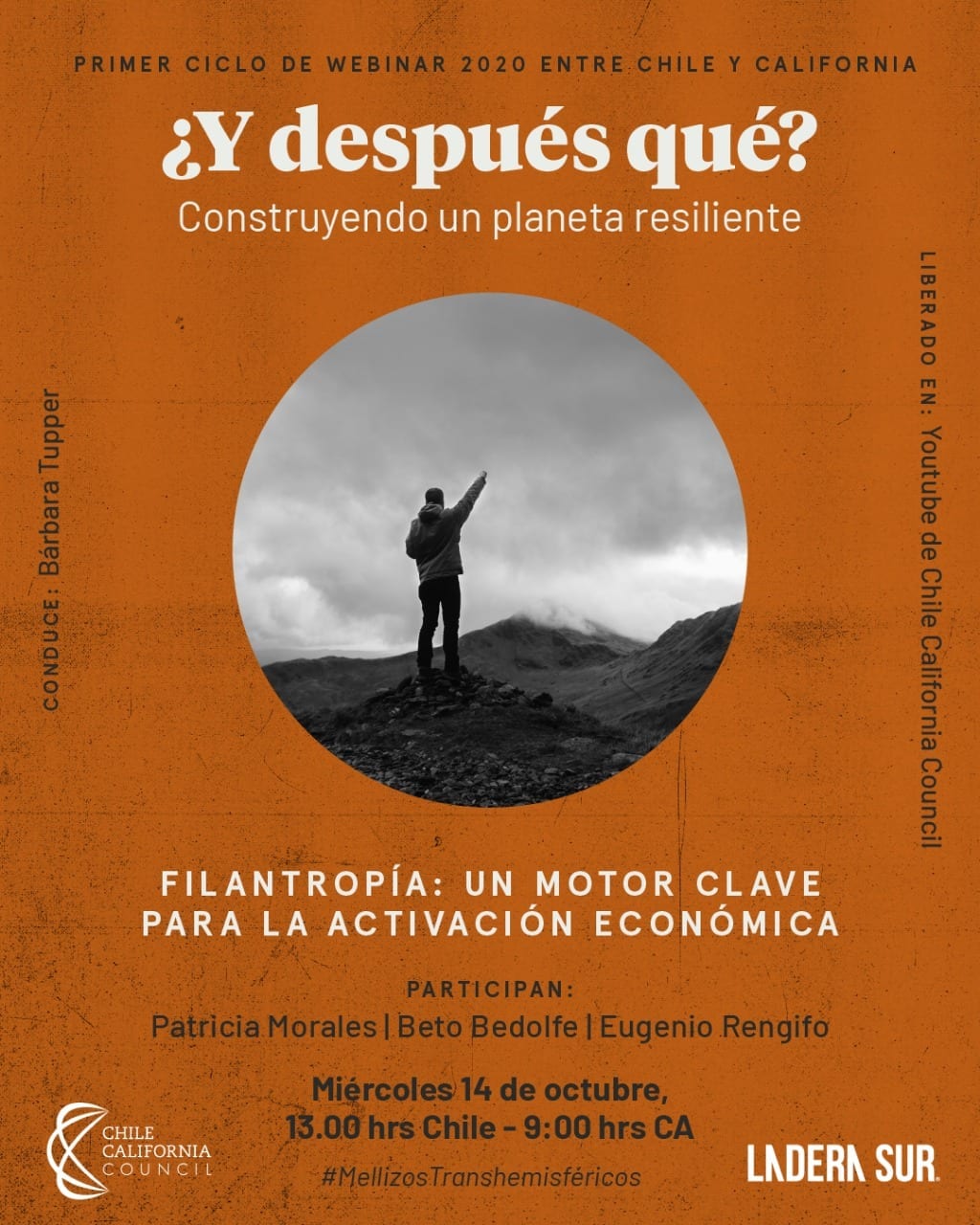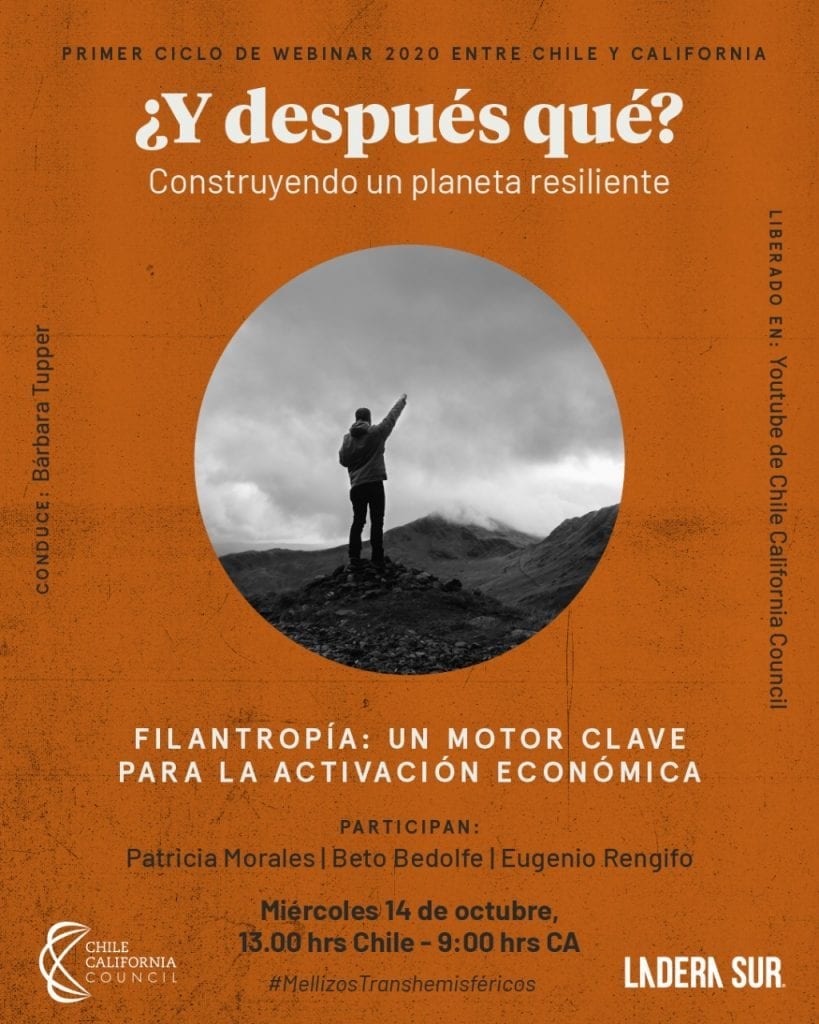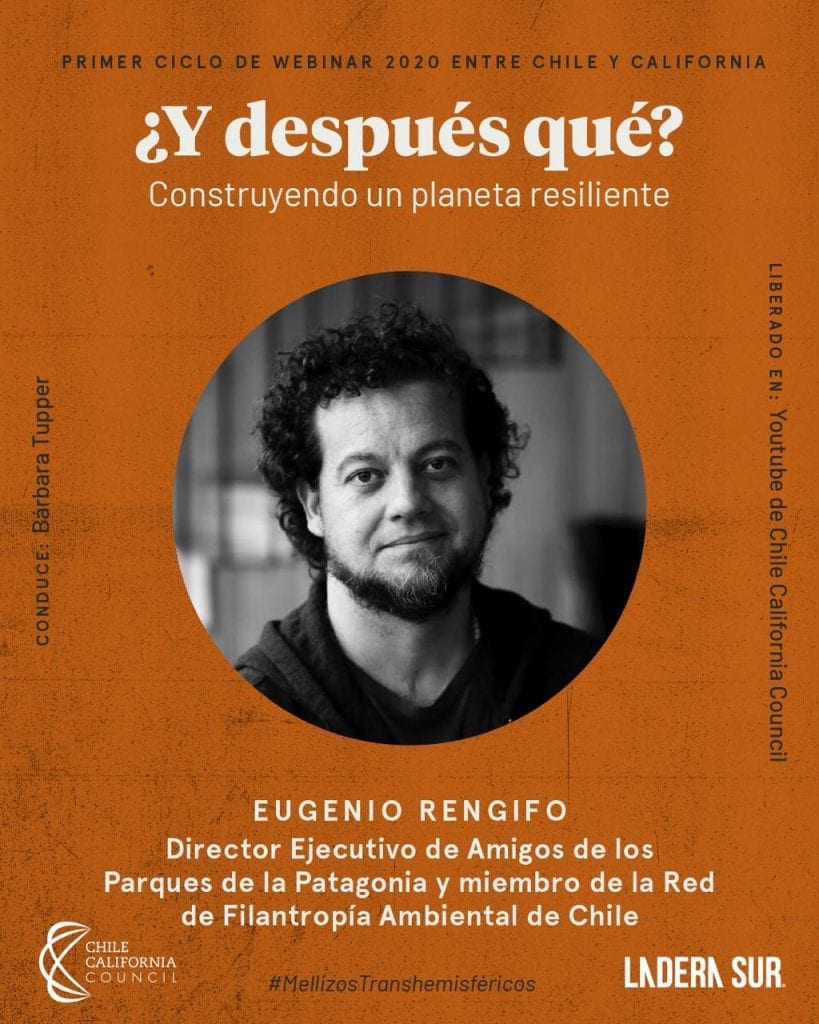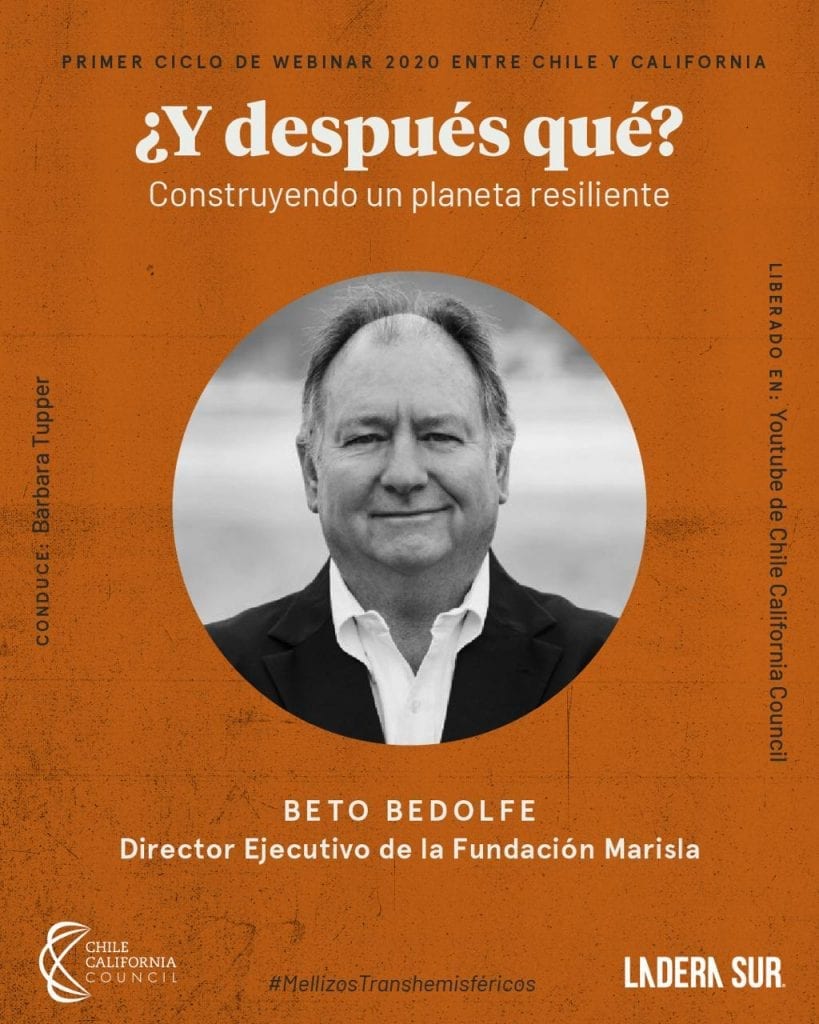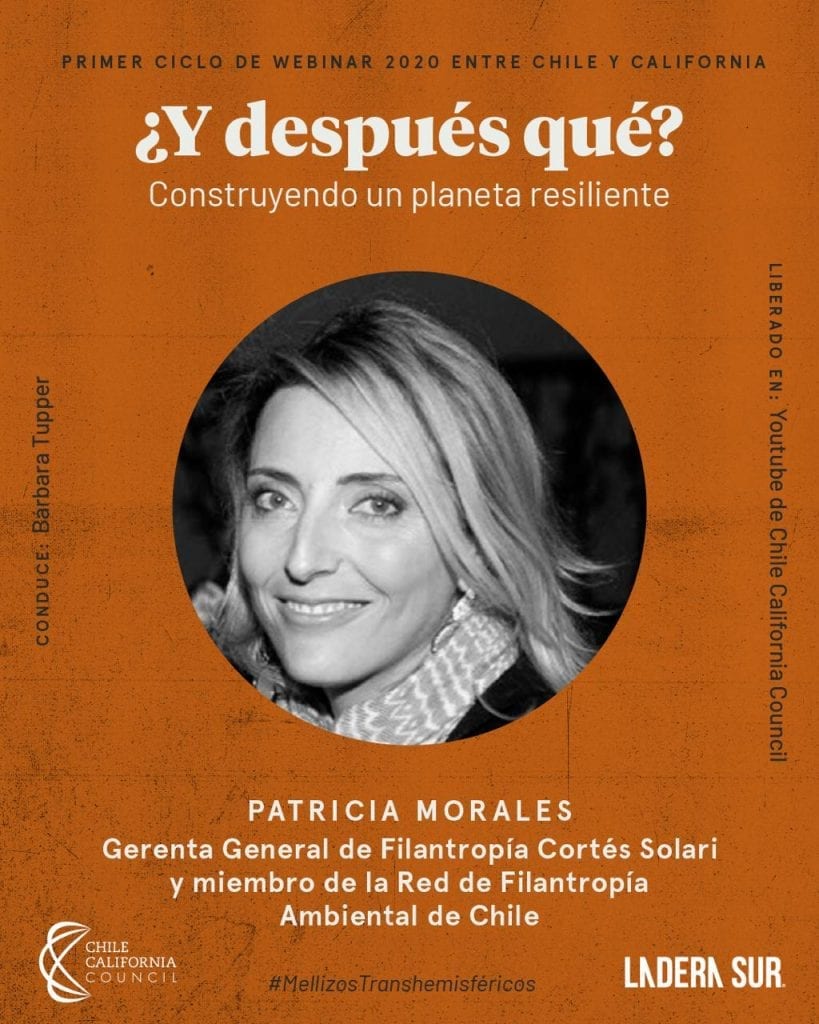¿Y después qué? Filantropía: un motor clave para la activación económica
The crisis we are facing worldwide has led us to rethink our economic and social system in search of the best ways to reactivate development more consistent with environmental processes and cycles. We have already seen this in the Chile California Council and Ladera Sur series of talks, “And then what? Building a resilient planet,” where we brought together various professionals from the world of business and philanthropy to discuss the possibilities of private entities contributing and providing solutions to public problems. Can philanthropy be a key driver in economic recovery? We invite you to read the summary and watch the video of this inspiring meeting.
This Wednesday, October 14th, the sixth discussion of the cycle “And then what? Building a resilient planet” was held, entitled “Philanthropy: a key driver in economic activation.” On this occasion we met with Herbert Bedolfe, the executive director of the Marisla Foundation and co-founder of Oceana; Patricia Morales, an economist, general manager of Filantropía Cortés-Solari, and member of the Environmental Philanthropy Network; and Eugenio Rengifo, the Executive Director of the Amigos de los Parques Corporation, to talk about and reflect on environmental philanthropy and future environmental challenges.
What is philanthropy? How can you help reactivate economies after a year as eventful as 2020? Those were some of the questions that the prominent guests answered. For Bedolfe, this is not about money, but about serving causes and about what people need. In a context of environmental crisis, a dedication to supporting environmental initiatives becomes even more indispensable. In Bedolfe’s words, “It is putting yourself at the service of others. A civic responsibility to the community.”
Strictly speaking, philanthropy means “love for humanity.” It comes from the Greek “philos,” meaning love, and “anthropos,” meaning human. Rengifo uses this definition to extend it to love and care for nature, which we cannot live without. According to Rengifo, “Without nature there is no man, there is no humanity, there is no possible human activity.”
As for Chile, in the context of the political setting now existing and the upcoming referendum on a new constitution, Patricia Morales pointed out that this was a new opportunity to change our country vision. She explained that “It is important to highlight the role of the private sector … They are also called upon to develop public policies through philanthropy.”
Morales points out that Filantropía Cortés-Solari defines this term as “publicly useful actions by private individuals.” He emphasized that Chile needs an institutional framework that promotes the participation of the private sector in public matters, based on what the State and civil society need. As Morales said, “Not only the State can take public policy action, but also other agents, and even better if together.” It is therefore imperative to improve the regulatory framework for the donation law and to resolve any doubts that people may have in this respect.
“Everyone is called upon to take up the banner of their passion, love, and local cause. And that can be by donating resources, time, connections, a series of actions that can be more powerful than money itself,” said Rengifo, who agrees with Bedolfe that philanthropy is not only about financial support. All kinds of private entities can participate, not just those with great resources. “Everyone is called upon to contribute,” he said.
Morales remarked that “We are a unique natural laboratory, with a unique natural wealth, yet our economic model is grounded on the significant extraction of natural resources.” She stressed the need to migrate to a model that provides services in other less extractive industries.
Bedolfe said that “Things go better if we work together,” who highlight the importance of collaboration between communities and public and private entities to jointly overcome social problems environmental. No one is left out of this because we all have a job to do, no matter how small. That was the call that our guests made to the audience.
Throughout the conversation, different visions and perspectives were exchanged based on the experiences of the guests. They were in agreement that the role of philanthropy must be emphasized in searching for solutions and community development, especially in a context of political and environmental crisis in which we are all called upon to act. Would you like to learn more about this? Relive this interesting discussion here and do not miss the upcoming ones sponsored by Ladera Sur and Chile California Council.
Watch video here
